Le Corbeau Blu-ray Movie
HomeLe Corbeau Blu-ray Movie 
The RavenCriterion | 1943 | 92 min | Not rated | Sep 20, 2022
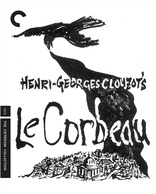
Movie rating
7.6 | / 10 |
Blu-ray rating
| Users | 0.0 | |
| Reviewer | 4.0 | |
| Overall | 4.0 |
Overview
Le Corbeau (1943)
A French village doctor becomes the target of poison-pen letters sent to village leaders, accusing him of affairs and practicing abortion.
Starring: Pierre Fresnay, Ginette Leclerc, Micheline Francey, Pierre Larquey, Héléna MansonDirector: Henri-Georges Clouzot
| Foreign | Uncertain |
| Drama | Uncertain |
| Thriller | Uncertain |
| Crime | Uncertain |
| Mystery | Uncertain |
Specifications
Video
Video codec: MPEG-4 AVC
Video resolution: 1080p
Aspect ratio: 1.37:1
Original aspect ratio: 1.37:1
Audio
French: LPCM Mono (48kHz, 24-bit)
Subtitles
English
Discs
Blu-ray Disc
Single disc (1 BD)
Playback
Region A (locked)
Review
Rating summary
| Movie | 4.0 | |
| Video | 5.0 | |
| Audio | 4.5 | |
| Extras | 2.0 | |
| Overall | 4.0 |
Le Corbeau Blu-ray Movie Review
Reviewed by Dr. Svet Atanasov August 21, 2022Henri-Georges Clouzot's "Le Corbeau" (1943) arrives on Blu-ray courtesy of Criterion. The supplemental features on the release include archival program with Bertrand Tavernier; excerpts from an archival French television program; and vintage trailer. In French, with optional English subtitles for the main feature. Region-A "locked".
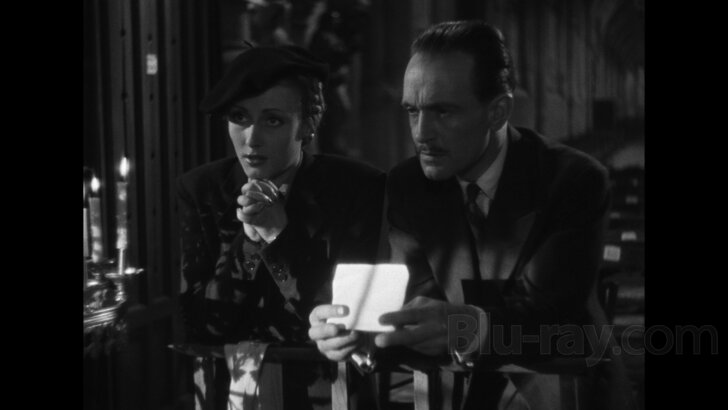
Le Corbeau (The Raven) nearly ended Henri-Georges Clouzot’s career. It was produced during the German occupation of France, sometime in early 1943, by Continental Films, a French company that was controlled by a German who had a very close relationship with Dr. Joseph Goebbels, Adolf Hitler’s trusted minister of propaganda. After the end of WWII, Clouzot was forced into exile for directing the film, and for a while, French state officials were adamant that he would never again work in France. With the invaluable support of friends like Jean-Paul Sartre, however, eventually, Clouzot was given a second chance and in 1947 he completed the excellent film noir Quai des Orfèvres.
The entire film is set in a sleepy provincial French town where the division between the ruling elites and the rest of the residents could not be any more obvious. But no one objects. Despite the occasional small public disagreements between the two sides, everyone has accepted that the current status quo allows the town to function as best as it could.
When a mysterious writer sends a bizarre letter to the well-respected Dr. Rémy Germain (Pierre Fresnay) that targets his reputation, however, the town suddenly comes alive. The sender, who identifies himself only as The Raven, alleges that the doctor has secretly carried out illegal abortions and other questionable operations, and now that his murky past has been exposed the town’s residents ought to condemn him. Soon after that, however, other letters are dispatched that reach different residents and their revelations threaten to destabilize the social order. A nurse (Helena Manson) from the local hospital, for instance, is accused of stealing morphine. A patient (Roger Blin) then commits suicide after he reads another letter and discovers that he is terminally ill. In the ensuing chaos, the town’s dark secrets slowly begin to emerge and fear and anger begin to erode its foundation.
It is not difficult to understand why Le Corbeau became so controversial and Clouzot was temporarily banished for directing it. The mystery that is at the center of its story is used to deliver the message that the French had become incredible hypocrites that would enthusiastically discard any of the values and beliefs that they supposedly cherish if they were in the way of furthering a personal agenda. In other words, it is a very cynical film that for the time being turned out to be far more effective than anything else that the German propaganda machine could have crafted.
After the end of the war, some angry French officials argued that Clouzot had directed a pro-Nazi film, but it was an overreaction. If anything, the moral vacuum that emerges in it after the first letter appears is indicative of the corrosive nature of the ‘new system’ that the Vichy regime was working hard to preserve.
*Director Otto Preminger remade Le Corbeau in 1951 as The 13th Letter.
Le Corbeau Blu-ray Movie, Video Quality 
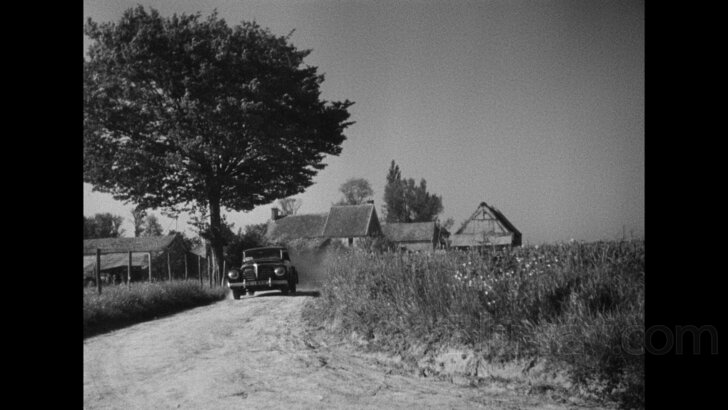
Presented in its original aspect ratio of 1.37:1, encoded with MPEG-4 AVC and granted a 1080p transfer, Le Corbeau arrives on Blu-ray courtesy of Criterion.
The release is sourced from a new 4K restoration of the film that was completed at Eclair Laboratories in Epinay-sur-Seine, France. This restoration was initially introduced on Blu-ray by StudioCanal in the United Kingdom. (You can see our listing and review of this release here).
I think that the 4K makeover is outstanding. Indeed, despite the age of the film, the improvements in delineation, clarity, and depth are substantial and present during daylight and darker indoor/nighttime footage. It is quite easy to appreciate the superiority of the grayscale as well. Density levels are much better than the ones present on Criterion's DVD release too, so even on a smaller screen the entire film simply looks a lot better. There are no traces of problematic digital corrections. The surface of the visuals, including before and after reel transitions, is always very healthy, so in addition to having a very strong organic appearance, the film looks immaculate as well. All in all, unless there is a 4K Blu-ray release in the future, I think it is fair to declare that the definitive presentation of Le Corbeau is available on Blu-ray. (Note: This is a Region-A "locked" Blu-ray release. Therefore, you must have a native Region-B or Region-Free player in order to access its content).
Le Corbeau Blu-ray Movie, Audio Quality 
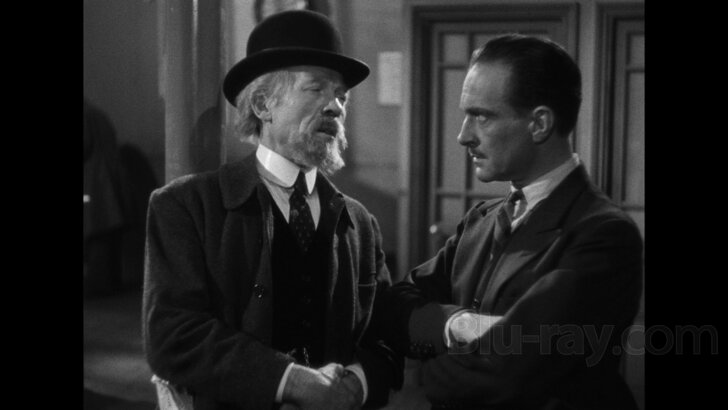
There is only one standard audio track on this Blu-ray release: French LPCM 1.0. Optional English subtitles are provided for the main feature.
There are a couple of areas, all early on, where the age of the film shows. In our review of StudioCanal's Region-B release of the 4K restoration of the film, I speculated that the light hiss/buzz in the upper register is on the surviving elements that were accessed because the audio becomes thinner and slightly distorted there as well. These are age-related anomalies and I believe that they are irreversible even with modern digital tools. This being said, you do not have to worry about any of these anomalies negatively affecting your viewing experience. If you turn up your volume a lot, you will simply notice their presence.
Le Corbeau Blu-ray Movie, Special Features and Extras 
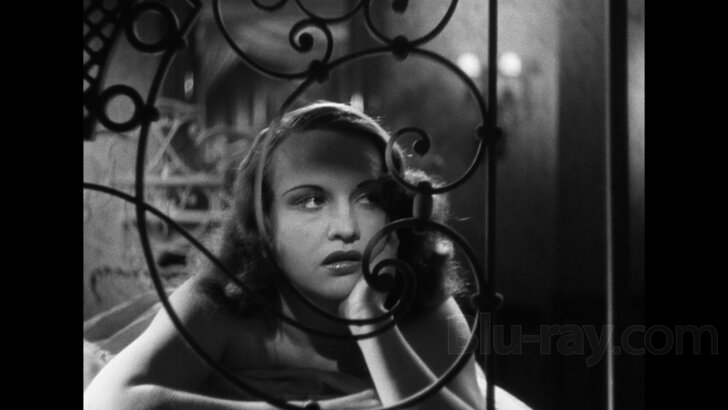
- Trailer - presented here is a vintage trailer for Le Corbeau. In French, with optional English subtitles. (4 min).
- Henri-Georges Clouzot - presented here are excerpts from the French television documentary The Story of French Cinema by Those Who Made It, which features an interview with Henri-Georges Clouzot discussing his experiences during WWII. Also included are clips from interviews with director Jean Aurenche (The Oldest Profession), writer Pierre Bost (Forbidden Games), and writer Charles Spaak (La Grande Illusion), amongst others. The program was produced by Armand Panigel in 1975. In French, with optional English subtitles. (8 min).
- Bertrand Tavernier - in this archival program, Bertrand Tavernier discusses the difficult history Le Corbeau had with contemporary critics. The program was produced for Criterion in 2003. In English, not subtitled. (22 min).
- Leaflet - an illustrated leaflet featuring an essay by film scholar Alan Williams as well as technical credits.
Le Corbeau Blu-ray Movie, Overall Score and Recommendation 
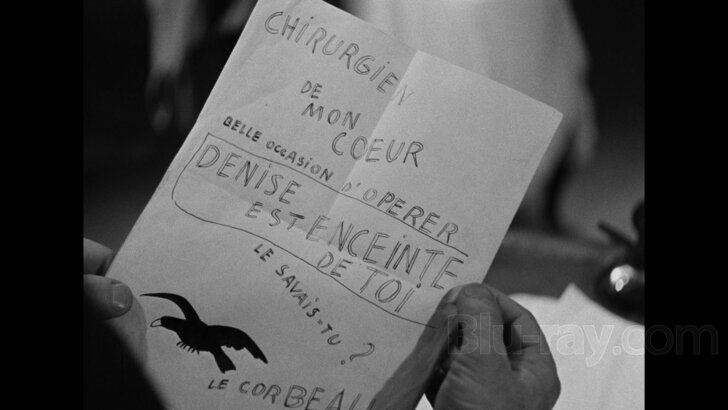
While a good film that offers a very interesting deconstruction of the evolving nature of French society during the Vichy regime, Le Corbeau is difficult to place next to the likes of Quai des Orfevres, The Wages of Fear, and Diabolique. It feels a bit too heavy and too focused on the message it aims to deliver, and as a result quite a lot of its cynicism quickly becomes rather artificial. But this is not how the French felt when the film premiered in 1943 -- it hit them hard and enraged them, and after the war ended they temporarily forced Henri-Georges Clouzot into exile. Criterion's upcoming Blu-ray release of Le Corbeau is sourced from an excellent 4K master that was prepared after the film was restored at Eclair Laboratories. RECOMMENDED.
Similar titles
Similar titles you might also like

Quai des Orfèvres
1947

Manon
Arrow Academy
1949

Pioneer
Pionér
2013

Everybody Knows
Todos lo saben
2018

Tell No One
Ne le dis à personne
2006

L' humanité
Humanité
1999

Mr. Klein
Monsieur Klein
1976

Love Crime
Crime d'amour / Slipcover in Original Pressing
2010

The Crimson Rivers
Les Rivières Pourpres
2000

Diabolique
Les diaboliques
1955

Diva
1981

I... For Icarus
I... comme Icare
1979

Rider on the Rain
Le passager de la pluie
1970

High and Low 4K
天国と地獄 / Tengoku to jigoku
1963

The Past
Le Passé
2013

Mother
마더 / Madeo
2009

Werckmeister Harmonies
Werckmeister harmóniák / includes "Family Nest" (1979)
2000

Nightcap
Merci pour le Chocolat
2000

Elle
2016

Knife of Ice
Il coltello di ghiaccio
1972